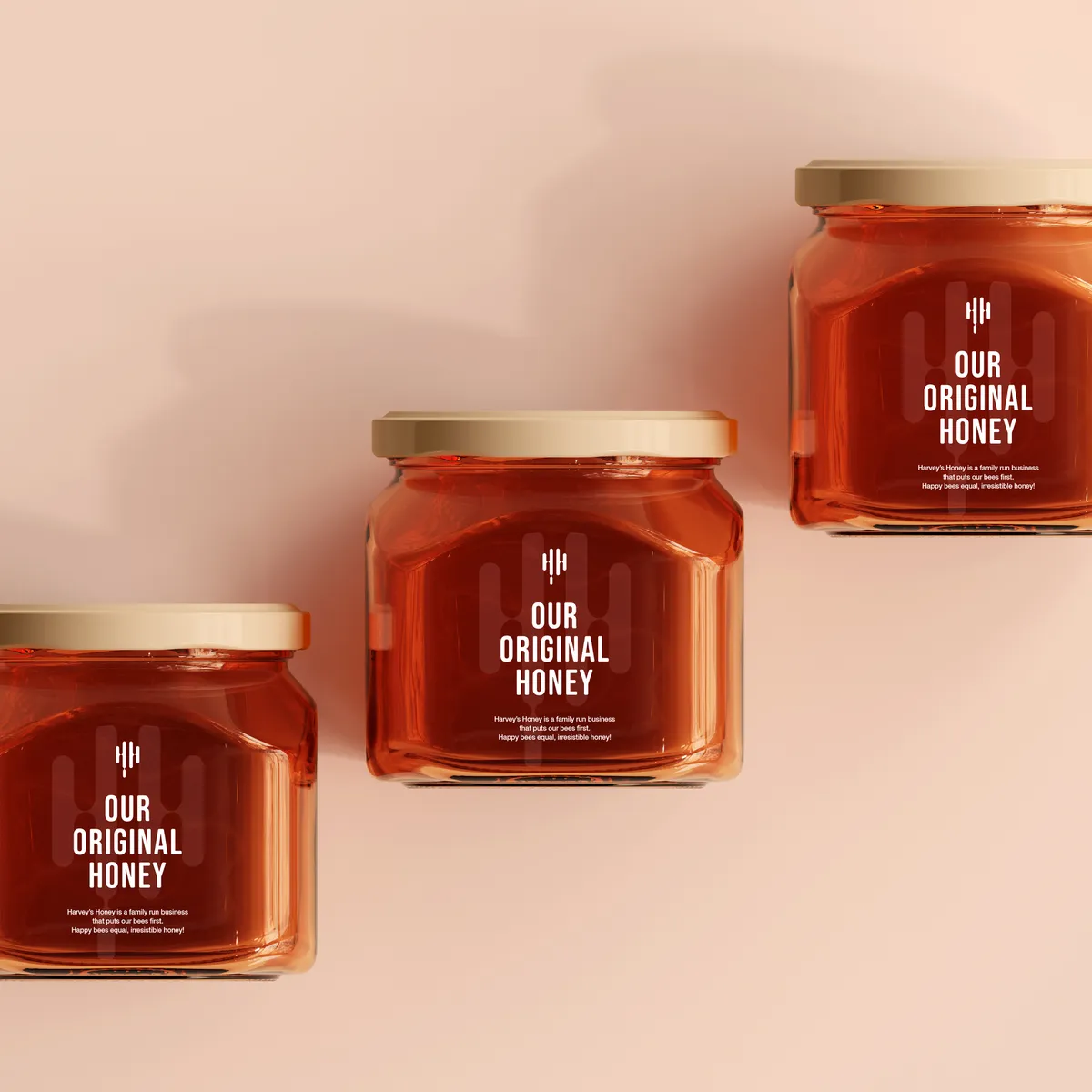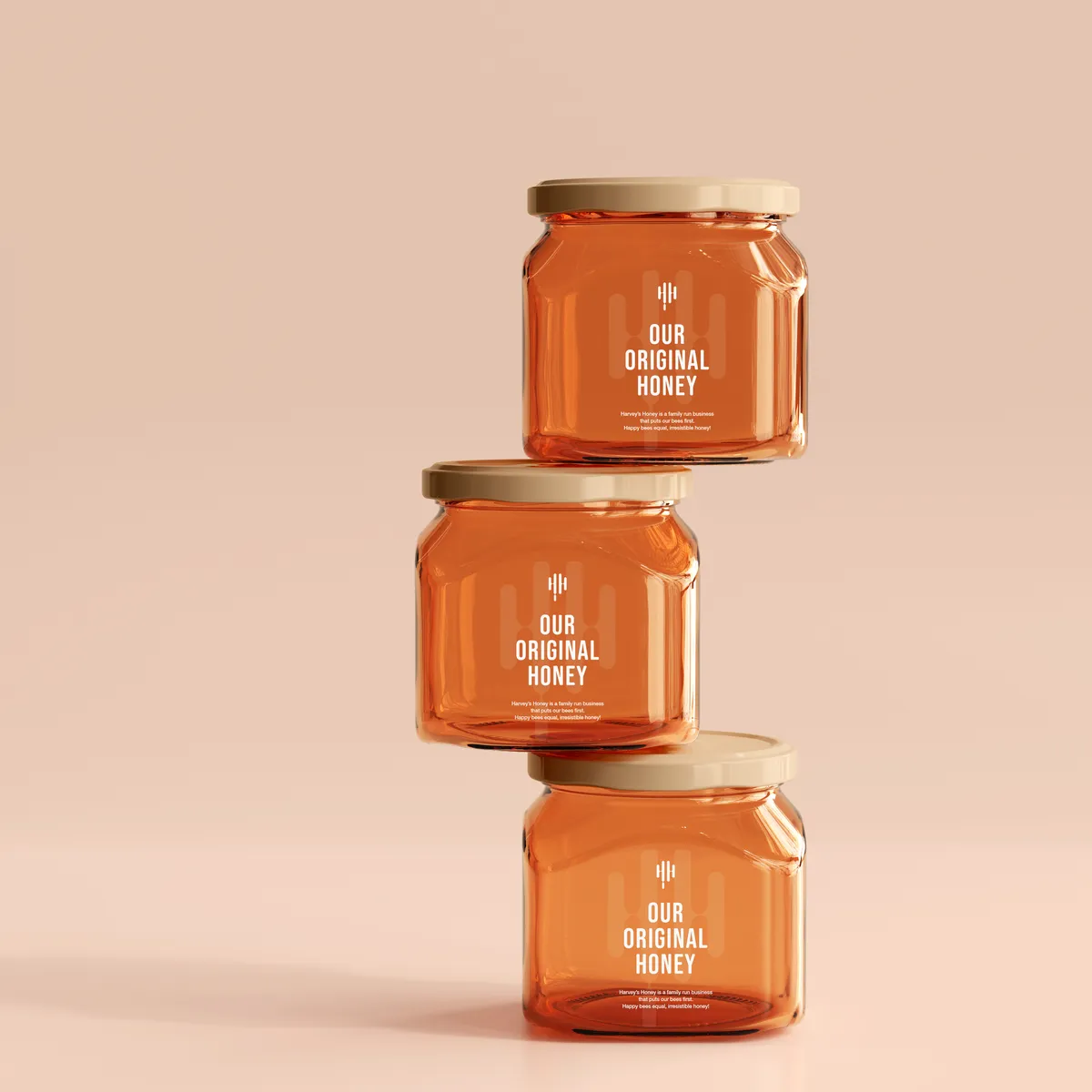
Health and wellness are having a major moment right now and honestly, it’s about time. Everyone’s prioritising clean eating, balanced lifestyles, and products that support their overall wellbeing. But here’s the thing: in an industry built on trust, transparency, AND quality, packaging design makes all the difference. It's about communicating safety, care, and authenticity at first glance. In a market flooded with options, transparent design (both literally and visually) helps consumers feel confident about what they’re putting in their bodies. And that confidence? It starts on the shelf.
Health-centric design means making the benefits of a product clear through its packaging design. Colours and imagery that evoke feelings of wellness, such as greens, blues, and natural elements, can make a big difference. User-friendly design elements, like easy-to-open lids and clear instructions, also enhance the overall consumer experience. We’re seeing many packaging design trends towards minimalism, especially in the beauty industry as well as in food and beverage packaging, where clean and simple designs communicate purity and quality.


Image source: Pukkaherbs.com

Image source: Pukkaherbs.com
These designs not only look appealing but also enhance consumer trust and perception, making them more likely to sell on the shelves.
Ever wondered how psychology can influence your buying behaviours? It’s mad! When it comes to packaging, the way a product is presented can significantly impact your decision to purchase. Consider investing in a packaging design agency to elevate your brand, attract more customers, and ensure your products stand out on the shelves. Let’s dive into some key psychological factors
✔️ Perceived value: Quality packaging can make a product seem more valuable.
✔️ Trust and credibility: Clear and honest packaging builds trust with consumers.
✔️ Emotional connection: Packaging that resonates emotionally can drive purchases
Understanding these psychological factors helps brands create packaging that influences buying decisions effectively.
Colour psychology also plays a major role in packaging design. But don't forget, these aren't all universal views. Choosing colours wisely is key as you can evoke different emotions and associations. For instance:
💚 Green: Often associated with health, wellness, and nature, green can make products feel more natural and eco-friendly.
💙 Blue: Conveys trust, calmness, and reliability, making it ideal for health products.
🤍 White: Suggests purity, simplicity, and cleanliness, which can enhance the perception of a product’s quality and safety.
By leveraging colour psychology, brands can enhance the appeal and effectiveness of their packaging in the health and wellness industry.

We all love a bit of transparency, don’t we! Transparent design involves using materials like clear plastic, glass, transparent labels, and see-through windows to show the product while maintaining a clean and professional look. This approach builds trust and allows consumers to see exactly what they’re buying, reducing the perceived risk. The benefits?
✔️ Builds trust with consumers
✔️ Allows consumers to see the product
✔️ Reduces perceived risk of purchasing
These benefits make transparent packaging a smart choice for health and wellness products.
| Material | Benefits | Drawbacks |
| Clear Plastic | Durable, lightweight | Environmental impact |
| Glass | High quality, recyclable | Fragile, heavy |
| Transparent Paper | Eco-friendly, compostable | Less durable, limited use cases |
Let’s take a look at Harvey’s Honey. They use glass jars for their honey, which not only allows consumers to see the product but also reinforces a high-quality, natural image. The glass jars are recyclable, adding eco-friendly packaging design. This approach helps build consumer trust, ensures the product's integrity and freshness and gives a premium, luxury feel to the product.


There’s no use in designing an amazing product if it’s just going to get damaged before it reaches your customer, right? That’s where smart packaging comes in. It’s all about designing for efficient transportation and storage. It's not just about looking good; it's about keeping your precious goods safe and sound. From biodegradable foam to recyclable rigid boxes, choosing the right protective packaging materials is key to ensuring your product arrives in perfect condition. Plus, you can do it all while being kind to the planet.
To ensure products arrive safely, materials like bubble wrap, foam inserts, and rigid boxes are commonly used. Each material offers different levels of protection and usability. Bubble wrap? It's like giving your product a big, cushy hug. Foam inserts? They cradle your items like a baby. And rigid boxes? They're the sturdy protectors, ensuring everything inside stays in tip-top shape.
Protective packaging doesn’t just protect your products; it also reassures your customers that they’ve made a good choice by purchasing from you. And remember, happy customers are repeat customers!
First, you need to understand the basics of sustainable packaging. Using protective materials doesn’t mean sacrificing sustainability. Innovations in biodegradable foam and recyclable rigid boxes are making it possible to protect products while being eco-friendly.
Case Studies of Protective Health Packaging

Effective packaging design in the UK’s health and wellness industry is key for building trust and ensuring product safety. Transparent and protective design elements not only meet consumer needs but also comply with regulatory standards. Innovation in packaging is key to staying ahead in this competitive market.
Reach out to us at Noramble for custom health and wellness packaging solutions that reflect your brand’s commitment to quality and transparency. At Noramble, we can help with packaging design, brand design and brand strategy. We know what we’re talking about and have helped brands in multiple industries stand out amongst their competitors. Get in touch today and take the next step towards creating your dream packaging design. Start a project.